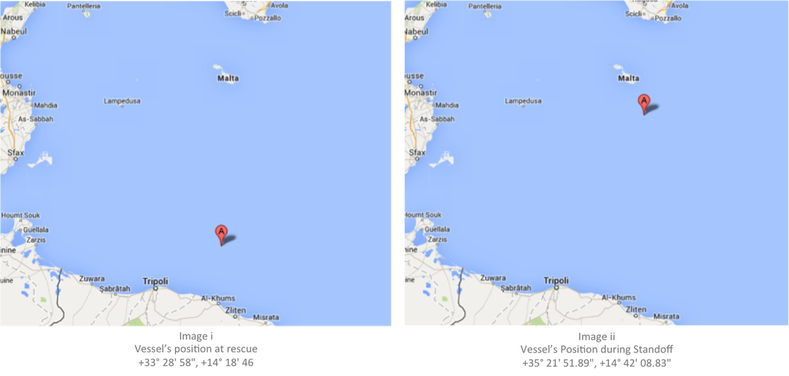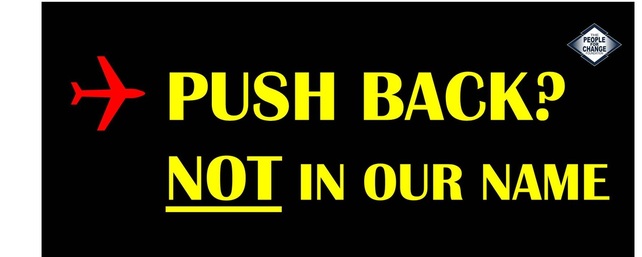Earlier today, we sent a letter to Maltese Prime Minister Joseph Muscat ahead of the extraordinary summit scheduled for tomorrow. The key message was that the death of over a thousand people at sea should be met with outrage towards the factors that led to their demise and resolve to ensure that such tragedies are not repeated. Bold new measures are needed to actualise that resolve. We re-iterated that saving lives at sea must be top priority and can only be achieved if the political will to prioritise life is secured. We called on the Prime Minister to show moral and political leadership on this issue at both the national and European level.
Migrant Arrivals 2013
The People for Change Foundation has been heavily involved in issues around migrant arrivals over the course of 2013. Our engagement has been in the light of our ongoing commitment to human rights at the borders. Throughout the ongoing issues and scenarios we have been interested in various dimensions namely the legal side including refugee law, human rights law and the law of the sea, as well as the social dimension with a specific focus on the xenophobia and racism that emanated around these events.
The People for Change Foundation:
1. Supports Malta’s call for greater solidarity from the European Union and its Member States, both in dealing with migrant arrivals as well as in shaping a longer-term sustainable framework.
2. Is against any form of push back that would constitute a breach of Malta’s international legal obligations.
3. Calls on the Maltese government to ensure that each asylum seeker be given an effective opportunity to seek international protection and that each application be heard and considered individually, in line with Malta’s legal obligations.
4. Remains committed to assisting the government, government agencies and NGOs in the development, implementation and evaluation of policies, measures and initiatives that safeguard the human rights and dignity of all.
5. Calls for restraint in the use of political discourse of crisis and panic, which intensifies xenophobia and racism.
Push Back – July 2013
On the morning of July 9th 2013, 102 Somali migrants were intercepted and brought to Malta by the Armed Forces of Malta. The group consisted of 41 women, two infants and 59 men. UNHCR and NGOs were denied access to the migrants, who were being held at the police headquarters, before the women and children were transferred to a detention centre.
Following reports by the media that approximately 45 of the migrants would be flown to Libya the same evening at midnight and 4am, the Jesuit Refugee Service and People for Change Foundation together with a number of supporting organizations filed a request with the European Court of Human Rights for an interim measure (Article 39 ECHR) to prevent this push back from taking place.
The court accepted the request and issued the interim measure stopping the deportations for the duration of the proceedings before the court.The Maltese government has stated that it would respect the decision of the Court. A national judicial protest has also been filed by 69 lawyers to halt the push-back. The Maltese Government replied to the queries raised by the ECHR on noting inter alia that: no final decision in this regard had yet been taken by the time when the Court issued its order under Rule 39 of the Rules of Court prohibiting deportation.
MV SALAMIS – August 2013
On August 4th, a vessel carrying migrants who had left Libya was rescued by an oil tanker, MV Salamis. The latter was instructed by the Italian Search and Rescue Coordination Centre (seemingly acting on behalf of the Libyan Authorities) to rescue those onboard the distressed vessel, namely 102 migrants (See Image I for Position). Whilst the Maltese government has stated that the Italian RCC instructed the vessel to return to Libya (from where it had departed), the Italian government has stated that instructions were given to go to the closest port, which was Tripoli. The Italian government stated that in reply to such instructions, the Master decided to proceed to Malta, which was the next port of call. The tanker proceeded to Malta, which was its next port of call, and a safe port. It appears that the decision to move towards Malta was taken by the vessel owners and its captain from what has been reported as commercial purposes. Both the Italian and the Maltese SAR Coordination Centres ordered the vessel to return to Libya however it has refused to do so. For two days, the Maltese government has insisted that the tanker will not be allowed to enter Maltese territorial waters. The tanker was instead just outside Malta’s contiguous zone and therefore on the high seas but within Malta’s search and rescue region (see Image II). The migrants aboard have received water as well as medical aid by medics from the Armed Forces of Malta who have boarded the vessel.
Commissioner Malmström stated on Tuesday that the priority is “the humanitarian duty of the Maltese authorities” to “let these persons disembark as soon as possible”. UNHCR has called for a quick and practical solution. Both highlighted that returning migrants to Libya is not an option. Maltese NGOs, ECRE and Amnesty international have issued similar statements.
Of particular concern to The People for Change Foundation was the insistence by the Maltese authorities (and the instructions by the Italian authorities) that the ship should disembark the migrants in Libya. Despite what may have been MV Salamis’s deference of the instructions given to it by RCC Rome and RCC Malta, Libya is still an unsafe country (as confirmed by the ECHR’s interim measure against Malta’s consideration of returning migrants to Libya on July 9th, 2013) and therefore the return and disembarkation of the migrants to Libya would have been in breach of international legal obligations.
On Tuesday evening it was announced that diplomatic efforts by the Maltese Government had lead to Italy accepting to take the migrants itself. The MV Salamis was heading to Syracuse in the early hours of Wednesday 7th August.
Of particular concern to The People for Change Foundation was the insistence by the Maltese authorities (and the instructions by the Italian authorities) that the ship should disembark the migrants in Libya. Despite what may have been MV Salamis’s deference of the instructions given to it by RCC Rome and RCC Malta, Libya is still an unsafe country (as confirmed by the ECHR’s interim measure against Malta’s consideration of returning migrants to Libya on July 9th, 2013) and therefore the return and disembarkation of the migrants to Libya would have been in breach of international legal obligations.
On Tuesday evening it was announced that diplomatic efforts by the Maltese Government had lead to Italy accepting to take the migrants itself. The MV Salamis was heading to Syracuse in the early hours of Wednesday 7th August.




